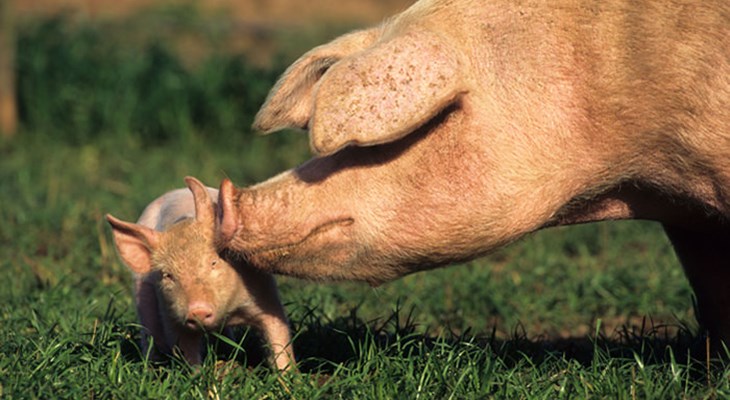
The way our food is produced is a growing topic of debate. Fast-growing chickens are cheaper and eat less feed, but slower-growing ones are more active and have better health and welfare. Pigs in intensive systems cost less to produce, but the provision of enriched environments means they are less likely to bite each others’ tails.
Compassion in World Farming provides stimulus materials to encourage discussion of these issues.
Films to demonstrate systems and animal behaviours:
- Farm Animals & Us 2 – 25 minute film demonstrates the costs, benefits and ethics of higher welfare systems of producing livestock compared with intensive systems. It also covers efficiency in human food chains and the impact of the manipulation of heredity on production and animal welfare
- A Life Worth Living – 5 minute film with five short sections of positive animal behaviour without commentary to encourage observation and discussion
- Animal Welfare Aspects of Good Agricultural Practice – Pig Production – 25 minute film demonstrates the behaviour of pigs in natural, semi-natural and intensive environments. It shows how frustration can lead to stereotypies and other misdirected behaviours and how these can be addressed by improving environments. A PowerPoint presentation, which accompanies the film, also has short film clips demonstrating a wide range of pig behaviours
Activities to stimulate thought and discussion:
- How Should We Treat Farm Animals? – small group discussion activity which encourages students to consider the pros and cons of different systems for producing meat, milk and eggs including organic, free-range and intensive
- Personality Test – an engaging activity which encourages students to explore their viewpoints about ethical issues around food production, animal welfare, sustainability and food security and to understand better the different opinions of others








